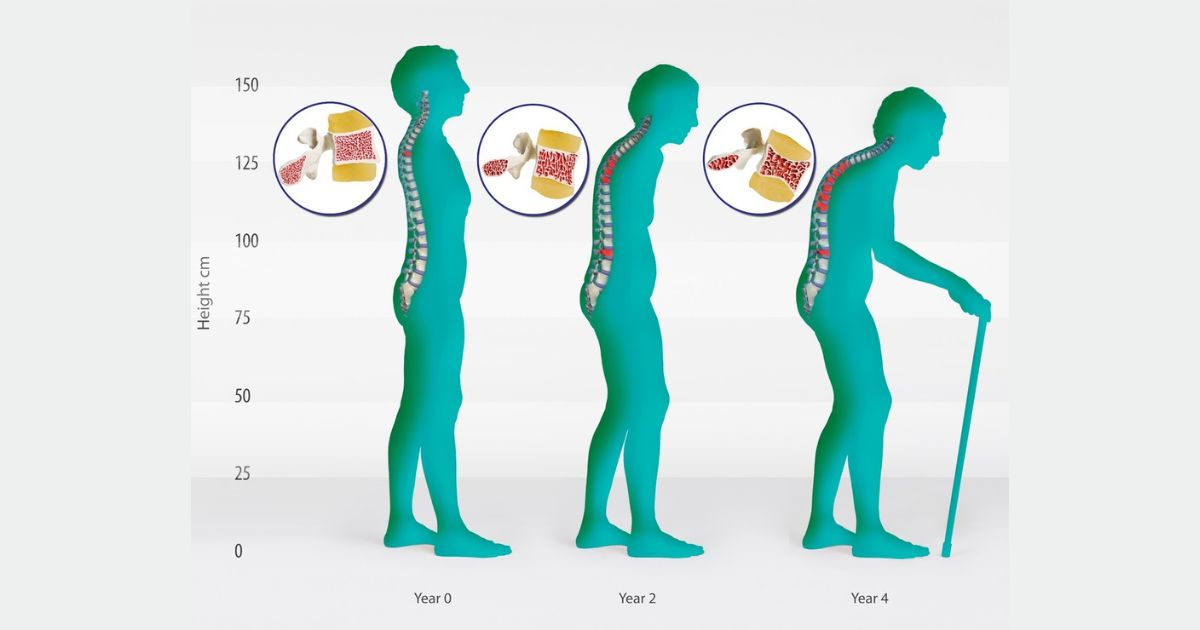Bone health is a critical yet often overlooked aspect of overall wellness. Strong bones support mobility, protect vital organs, and serve as a reservoir for essential minerals like calcium and phosphorus. However, as we age—or due to poor nutrition, sedentary lifestyles, or certain medical conditions—bone density can decline, increasing the risk of fractures, osteoporosis, and other skeletal issues.
In recent years, dietary supplements aimed at supporting bone integrity have gained popularity. Among these, Osteopur has emerged as a notable option for individuals seeking a natural, science-backed approach to maintaining healthy bones. But what exactly is Osteopur? How does it work? And is it right for you?
This comprehensive article explores Osteopur in detail—its formulation, key ingredients, potential benefits, safety considerations, and how it fits into a holistic bone health strategy. Whether you’re approaching middle age, managing a bone-related condition, or simply proactive about wellness, understanding Osteopur can help you make informed decisions about your health.
Table of Contents
Understanding Bone Health and Why It Matters
Before diving into Osteopur, it’s essential to understand why bone health deserves attention.
Bones are living tissues that constantly undergo remodeling—a process where old bone is broken down (resorption) and new bone is formed (formation). During youth, bone formation outpaces resorption, leading to peak bone mass typically achieved by the late 20s or early 30s. After that, the balance gradually shifts, and bone loss may outpace formation, especially in women after menopause due to declining estrogen levels.
Risk factors for poor bone health include:
- Aging
- Low calcium or vitamin D intake
- Sedentary lifestyle
- Smoking and excessive alcohol consumption
- Family history of osteoporosis
- Certain medications (e.g., corticosteroids)
- Medical conditions like rheumatoid arthritis or hyperthyroidism
Maintaining bone density isn’t just about preventing fractures—it’s about preserving independence, mobility, and quality of life as we age. This is where targeted nutritional support, such as that offered by Osteopur, can play a valuable role.
What Is Osteopur?
Osteopur is a dietary supplement specifically formulated to support bone strength, density, and overall skeletal health. Marketed as a natural, multi-ingredient formula, it combines key vitamins, minerals, and plant-based compounds known for their roles in bone metabolism and structural integrity.
Unlike single-nutrient supplements (like plain calcium pills), Osteopur takes a synergistic approach—meaning its ingredients work together to enhance absorption, utilization, and effectiveness. This holistic strategy aligns with modern nutritional science, which emphasizes that nutrients rarely act in isolation.
While formulations may vary slightly by manufacturer, most versions of Osteopur include a core blend of:
- Calcium
- Vitamin D3
- Vitamin K2 (often as MK-7)
- Magnesium
- Zinc
- Boron
- Collagen peptides or bone-supportive plant extracts (e.g., horsetail, nettle)
These components are carefully dosed to complement one another, ensuring optimal bone-building activity without exceeding safe upper limits.
Key Ingredients in Osteopur and Their Roles
Let’s break down the primary ingredients commonly found in Osteopur and explain how each contributes to bone health.
1. Calcium: The Foundation of Bone Structure
Calcium is the most abundant mineral in the human body—about 99% of it resides in bones and teeth. It provides structural rigidity and strength. Without sufficient calcium, the body draws it from bones, weakening them over time.
Osteopur typically includes calcium in a highly absorbable form, such as calcium citrate or calcium carbonate, often paired with vitamin D to enhance uptake.
2. Vitamin D3: The Calcium Gatekeeper
Vitamin D3 (cholecalciferol) is essential for calcium absorption in the gut. Without enough vitamin D, only 10–15% of dietary calcium is absorbed. With adequate D3, absorption can jump to 30–40%.
Many people are deficient in vitamin D due to limited sun exposure, sunscreen use, or living in northern latitudes. Osteopur includes vitamin D3 to ensure calcium is effectively utilized—not wasted.
3. Vitamin K2 (MK-7): The Bone Traffic Director
Vitamin K2, particularly the MK-7 form, plays a crucial but underappreciated role. It activates osteocalcin—a protein that binds calcium to the bone matrix—and matrix Gla protein (MGP), which prevents calcium from depositing in arteries (a process called vascular calcification).
In short, K2 ensures calcium goes to the bones—not the arteries. This dual action makes it a vital component of Osteopur’s formula.
4. Magnesium: The Unsung Bone Ally
Magnesium supports over 300 enzymatic reactions in the body, including those involved in bone formation. It also helps convert vitamin D into its active form and influences parathyroid hormone regulation—both critical for calcium balance.
Low magnesium levels are linked to reduced bone density. Osteopur includes magnesium to support this foundational mineral synergy.
5. Zinc and Boron: Trace Minerals with Big Impact
Zinc is involved in collagen synthesis and bone cell formation. Boron, though needed in tiny amounts, enhances the effects of calcium, magnesium, and vitamin D, and may help reduce calcium excretion.
These trace minerals are often missing from basic bone supplements but are included in Osteopur for comprehensive support.
6. Plant-Based Extracts and Collagen Support
Some formulations of Osteopur also incorporate natural extracts like horsetail (rich in silica, which supports connective tissue) or collagen peptides. Collagen makes up about 30% of bone mass and provides the flexible framework upon which minerals are deposited.
By including these elements, Osteopur addresses not just mineral density but also bone quality and resilience.
How Osteopur Works: The Science Behind the Synergy
The effectiveness of Osteopur lies in its synergistic formulation. Rather than relying on one “magic bullet,” it leverages the interconnected roles of multiple nutrients.
For example:
- Vitamin D3 increases calcium absorption.
- Vitamin K2 directs that calcium into bone tissue.
- Magnesium ensures proper vitamin D activation and supports bone crystal formation.
- Zinc and boron fine-tune metabolic processes that maintain bone turnover balance.
This network effect mimics how nutrients work in whole foods—supporting the body’s natural physiology rather than overriding it with megadoses of isolated compounds.
Clinical studies support this approach. Research shows that combined supplementation with calcium, vitamin D, and K2 leads to greater improvements in bone mineral density (BMD) than calcium and D alone. Similarly, magnesium deficiency has been linked to increased fracture risk, independent of BMD—highlighting the need for a multi-faceted strategy.
Osteopur is designed with this evidence in mind, offering a balanced, bioavailable blend that supports both bone quantity and quality.
Who Can Benefit from Osteopur?
While anyone can support their bone health through proper nutrition and lifestyle, certain groups may especially benefit from a supplement like Osteopur:
Postmenopausal Women
Estrogen decline after menopause accelerates bone loss. Studies show that up to 20% of bone mass can be lost in the first 5–7 years post-menopause. A targeted supplement like Osteopur can help mitigate this loss.
Older Adults (Age 50+)
Bone remodeling slows with age, and nutrient absorption often declines. Older individuals may not get enough vitamin D or calcium from diet alone, making supplementation prudent.
Individuals with Low Bone Density or Osteopenia
Those diagnosed with low bone mass (osteopenia) are at higher risk of progressing to osteoporosis. Osteopur can be part of a preventive strategy alongside weight-bearing exercise and medical monitoring.
People with Limited Sun Exposure or Dairy Intolerance
Vegans, lactose-intolerant individuals, or those who avoid dairy may struggle to meet calcium and vitamin D needs. Osteopur offers a non-dairy, easily absorbed alternative.
Athletes and Active Individuals
High-impact sports increase bone stress. Adequate mineral support helps maintain bone integrity and reduce stress fracture risk.
It’s important to note that Osteopur is not a treatment for osteoporosis or other bone diseases. It’s a dietary supplement meant to support general bone health as part of a broader wellness plan.
Safety, Dosage, and Potential Interactions
Osteopur is generally considered safe when taken as directed. However, as with any supplement, there are important considerations:
Recommended Dosage
Most formulations suggest one to two capsules daily, preferably with a meal to enhance absorption of fat-soluble vitamins (D and K). Always follow label instructions or consult a healthcare provider.
Possible Side Effects
Side effects are rare but may include mild digestive upset (e.g., bloating or constipation), especially with high calcium doses. Choosing a well-formulated product like Osteopur, which uses balanced ratios and absorbable forms, minimizes this risk.
Drug Interactions
- Blood thinners (e.g., warfarin): Vitamin K2 can interfere with anticoagulant medications. Those on blood thinners should consult a doctor before using Osteopur.
- Thyroid medications: Calcium can reduce the absorption of levothyroxine. Take thyroid meds at least 4 hours apart from calcium-containing supplements.
- Diuretics or kidney disease: Excess calcium or magnesium may pose risks for individuals with kidney impairment.
Always disclose supplement use to your healthcare provider, especially if you have chronic conditions or take prescription medications.
Osteopur vs. Other Bone Supplements
The market is flooded with bone health products—calcium-only pills, vitamin D drops, collagen powders, and more. How does Osteopur stand out?
- Comprehensive Formula: Unlike single-ingredient products, Osteopur provides a full spectrum of bone-supportive nutrients in clinically relevant ratios.
- Bioavailability Focus: It uses forms of nutrients (e.g., D3 instead of D2, MK-7 instead of K1) known for better absorption and longer activity in the body.
- Vascular Protection: The inclusion of vitamin K2 addresses a critical gap in many bone supplements—preventing harmful calcium buildup in arteries.
- Natural Ingredients: Many versions avoid artificial fillers, preservatives, or allergens, appealing to health-conscious consumers.
That said, not all bone supplements are equal. Always check the label for ingredient quality, dosage, and third-party testing. Osteopur’s reputation rests on its thoughtful formulation and transparency.
Lifestyle Factors That Complement Osteopur
Supplements work best when paired with healthy habits. To maximize the benefits of Osteopur, consider these lifestyle strategies:
Weight-Bearing Exercise
Activities like walking, jogging, dancing, or resistance training stimulate bone formation. Aim for at least 30 minutes most days.
Adequate Protein Intake
Protein provides the collagen matrix for bones. Include lean meats, legumes, eggs, or plant-based proteins in your diet.
Avoid Smoking and Limit Alcohol
Smoking impairs bone cell function, and excessive alcohol interferes with calcium balance.
Balanced Diet
Focus on whole foods rich in bone nutrients: leafy greens (calcium, K1), fatty fish (D3), nuts and seeds (magnesium, zinc), and fruits (boron).
Osteopur enhances—but doesn’t replace—these foundational practices.
Frequently Asked Questions About Osteopur
Q: Can I take Osteopur if I’m already on osteoporosis medication?
A: Possibly, but consult your doctor first. Some medications (like bisphosphonates) already include calcium and vitamin D, so additional supplementation may not be needed—or could cause excess.
Q: How long does it take to see results?
A: Bone remodeling is slow. While you may not “feel” changes, consistent use over 6–12 months, combined with lifestyle habits, can support measurable improvements in bone density.
Q: Is Osteopur suitable for vegetarians or vegans?
A: Many formulations are vegetarian-friendly, but check the source of vitamin D3 (often derived from lanolin) and collagen (if included). Vegan versions may use lichen-derived D3.
Q: Can men benefit from Osteopur?
A: Absolutely. While osteoporosis is more common in women, men also experience age-related bone loss and can benefit from proactive support.
Conclusion: Is Osteopur Right for You?
Bone health is a lifelong investment. While genetics play a role, lifestyle and nutrition are powerful modifiable factors. Osteopur offers a scientifically grounded, multi-nutrient approach to supporting strong, resilient bones—especially for those at higher risk of bone loss due to age, diet, or hormonal changes.
By combining calcium, vitamin D3, vitamin K2, magnesium, and other synergistic nutrients, Osteopur addresses both the mineral and structural aspects of bone integrity. It’s not a cure-all, but when used as part of a holistic strategy—including exercise, balanced nutrition, and regular health screenings—it can be a valuable ally in maintaining skeletal wellness.
Before starting any new supplement, speak with a healthcare provider to ensure it aligns with your individual needs. But for many, Osteopur represents a smart, natural step toward stronger bones and a more active, independent future.
In a world where preventive health is gaining well-deserved attention, Osteopur stands out as a thoughtfully designed solution for one of the body’s most essential support systems. Whether you’re in your 30s building peak bone mass or in your 60s preserving what you have, Osteopur offers a foundation worth considering. And as research continues to highlight the importance of nutrient synergy, products like Osteopur are likely to remain at the forefront of bone health innovation.












